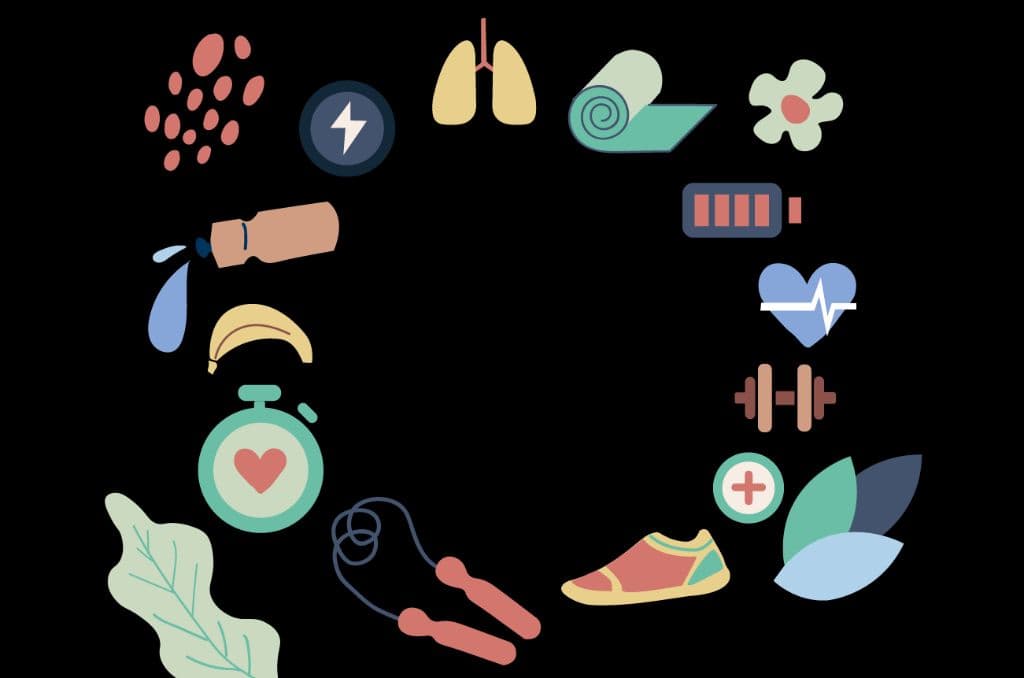Protein is a macronutrient, so our body requires it in large quantities. Our daily protein requirements depend on many factors like age, sex, physical activity and physiological conditions. But on average, a person requires 0.8-1 gm protein per kg of their body weight.
Protein is necessary for various parts and functions of the human body:
- Building and maintaining muscle mass
- Forming our cells, hormones and enzymes
- Maintaining skin, hair and nails health
- Building immunity
Protein for vegans
A vegan diet excludes all animal sources of food like milk, milk products, honey, chicken, meat, seafood, eggs, etc. It is a common myth that only animal-based foods are high in protein. Vegans can meet their protein requirements by consuming plant-based foods too.
Plant-based protein foods are:
- High in fibre, hence easier to digest.
- Lower in cholesterol or saturated fats.
- Phytonutrients and antioxidants in them are essential for our overall health.
- Less inflammatory and better for our gut health, unlike dairy products that can cause people to feel bloated and gassy.
- Provides non-heme iron to the body.
- Lactose-free and lower on allergens.
With so many added benefits, plant-based protein sources become a better choice.

14 plant-based protein sources
Tofu
Tofu originates from soybeans, a complete protein source. It is soybean curd - the process of making it is similar to that of making cottage cheese. Apart from being an excellent protein source, tofu also contains iron, calcium, folate Vitamin K and B Vitamin. It is also a good source of magnesium and phosphorus that are crucial for bone health.
How to consume: Tofu does not have an innate taste; hence, you can flavour it your way. It can be a replacement for all cottage cheese (paneer) dishes.
Edamame
Edamame is immature or baby soybeans. They are slightly sweet and used in a variety of dishes. Edamame has very similar nutrients and health benefits to that of tofu.
How to consume: Steam or boil edamame and flavour it.
Lentils
Lentils are rich in protein and fibre. If you are trying to lose weight, you must add it to your diet. It is also beneficial for cardiac health. Lentils are a prebiotic, aiding a healthy gut. Those having diabetes can eat lentils without worrying about their blood sugar levels spiking up. It also contains other necessary nutrients such as folate, manganese and iron.
How to consume: Dals, soups
Beans such as chickpeas, kidney beans, black beans
All of the bean varieties contain high amounts of protein. Being a good source of complex carbohydrates, they prevent spiking up blood sugar levels. It also decreases your cholesterol levels and lowers hypertension. Aside from these benefits, they provide your body with fibre, folate and potassium. Additionally, consuming chickpeas meets your calcium requirements too.
How to consume: Make chickpeas curry, hummus with chickpeas. Add chickpea flour or besan to the wheat flour dough to increase the protein content. Using the other beans, make curries and soups.
Nutritional yeast or nooch
Nutritional yeast or nooch is a new addition to the Indian markets. It is a deactivated strain of yeast, known as Saccharomyces cerevisiae. You will find it in either powder form or flakes. As it has a cheesy flavour, it can be a replacement for vegans or people who are lactose intolerant who cannot eat cheese. Fortification of nutritional yeast is done with zinc, magnesium and copper. It is also a good source of vegan Vitamin B12. Check the label before buying to make sure it is fortified.
How to consume: Add it to flavour anything such as soups, tofu scramble, vegetables, pasta, popcorn, mashed potatoes.
Hemp Seed or hemp heart
Even though hemp seed or hemp heart belongs to the cannabis plant, they barely have any drug effects. It is a complete and easily digestible protein source. Hemp seeds also provide iron, calcium, zinc and selenium. Vegans can also get Omega 3 that has anti-inflammatory properties with hemp seeds.
How to consume: Sprinkle hemp seeds on a fruit bowl, soups or smoothies.
Green peas
Green peas are seasonal, but now we get frozen peas, making it easier to incorporate them into the daily diet. Peas are not only rich in protein but also in fibre. You can also get Vitamin A, Vitamin C, folate, Vitamin B1 (thiamin) and other B Vitamins.
How to consume: Curries, soups, stuffed parathas, etc.
Spirulina
Spirulina, a form of blue-green algae is relatively new to Indians. It is a single cell, a complete source of protein. Spirulina is an excellent source of protein, thiamine, iron and copper. It also contains potassium and essential fatty acids. Apart from this, phycocyanin, a compound found in spirulina is a powerful anti-inflammatory and antioxidant. It also helps improve immunity.
How to consume: It is available in tablet or powder form. Take it with water.
Amaranth
Amaranth or rajgira is a pseudo-grain, generally eaten during fasting. It is a complete protein source. As it is a good source of complex carbohydrates, it will not spike up your blood sugar levels. It is high in iron, phosphorus, magnesium and calcium.
How to consume: Amaranth flour dishes, puffed amaranth
Quinoa
Quinoa is also a pseudo-grain but not native to India. However, it is available everywhere now. Quinoa is also a complete protein source and high in iron and manganese. Like amaranth, even quinoa does not spike up your blood sugar levels.
How to consume: Quinoa can be a replacement for rice or any grain. Puffed quinoa is also available but make sure to buy the plain, unflavoured ones. Also, make bakery items like cookies, bread, pancakes, etc. with quinoa flour.
Oats or oatmeal
Oats are a cereal grain, having many benefits. It is useful for people trying to lose weight, having high cholesterol and heart issues. Consume unprocessed oats, high in protein, fibre as well as contain zinc, phosphorus and folate.
How to consume: You can replace anything made with wheat with oats. While making wheat dough, add oat flour to it to increase the protein content. You can also consume oatmeal for breakfast. Make cookies, smoothies, energy or protein bars with oats.
Brown rice or wild rice
Brown rice is a lesser processed version of white rice and contains 1.5 times more protein than white rice. Rice is very high in B vitamins. Being unpolished, it has a lot of fibre also.
How to consume: You can replace white rice in dishes with brown rice.
Nuts, nut butter and all seeds
Nuts and seeds provide protein, healthy fats, iron, calcium, Vitamin E, phosphorus and magnesium. They also contain high antioxidants because they are derived from plants. You can munch on nuts as it is a healthy snack option. If it is difficult for you to digest nuts, you can either roast them or soak them overnight and peel them before eating.
How to consume: You can munch on whole nuts and seeds. Nut butter like peanut butter, almond butter and seed butter is a replacement for other spreads. But before buying them, check the labels for the nuts to be the sole ingredient in them. You can also use these nuts and in smoothies, energy bars and energy bombs.
Chia seeds
Chia seeds are not native to India but it is readily available in all the markets now. These seeds have cooling properties and are high in fibre and Omega 3 fatty acids.
How to consume: Add chia seeds to smoothies or energy bars. You can also add them to water and keep sipping them throughout the day. You can even make chia pudding using coconut milk and top it with granola or fruits.
Bottom Line
After reading this article, you would have understood that you can get enough protein from plant-based protein sources. Now that all myths have been busted, it’s time for you to try out your own protein-packed recipes and share them with others!
Disclaimer: This information is educational and should not be construed as medical advice. Please consult your doctor before making any dietary changes or adding supplements.
Proactive For Her is a digital clinic for women, offering accessible, personalised, and confidential healthcare solutions. We offer out-patient care, diagnostic services and programs for various health concerns of Indian women, across their lifetime - from puberty to pregnancy to menopause.

